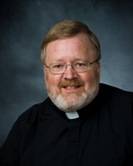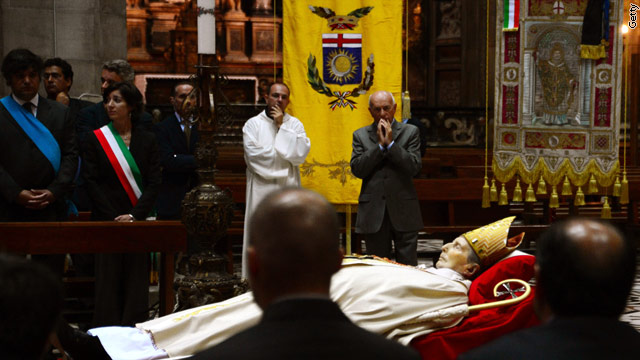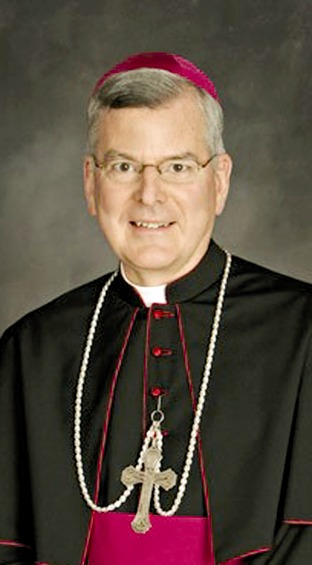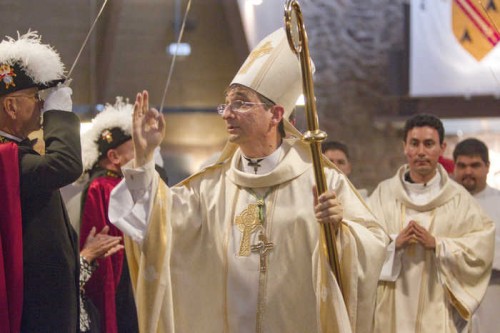Calls for Bishop Robert Finn’s resignation intensified the day after he became the highest-ranking U.S. church official to be convicted of a crime related to a child sexual abuse scandal.
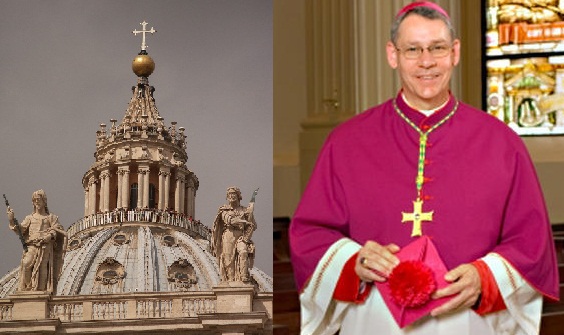 Soon after a Missouri judge found Bishop Finn guilty Thursday of one misdemeanor count of failing to report suspected child sexual abuse to the state, unhappy Roman Catholics began discussing ways to get the bishop out of office on a Facebook page titled “Bishop Finn Must Go.”
Soon after a Missouri judge found Bishop Finn guilty Thursday of one misdemeanor count of failing to report suspected child sexual abuse to the state, unhappy Roman Catholics began discussing ways to get the bishop out of office on a Facebook page titled “Bishop Finn Must Go.”
Among the posts was one that listed contact information for the Vatican and urged parishioners to voice their displeasure with Bishop Finn at the highest levels. Pope Benedict XVI alone has authority over bishops. Through the decades-long abuse scandal, only one U.S. bishop has stepped down over his failures to stop abusive clergy: Cardinal Bernard Law – who, in 2002, resigned as head of the Archdiocese of Boston.
Jackson County Judge John M. Torrence sentenced Bishop Finn to two years of supervised probation. If the bishop abides by a set of stipulations from the judge, the conviction will be wiped from his record in 2014.
“Now that our justice system says he’s guilty, he has lost his ability to lead our diocese,” Patricia Rotert, a Catholic church member in Kansas City, said Friday. “He’s lost his credibility. There is turmoil and angst around him and I don’t think he can bring people together.”
Bishop Finn’s attorneys would not comment on the bishop’s future in the church, saying it was a legal matter.
However, Catholic Diocese of Kansas City-St. Joseph spokesman Jack Smith indicated that Bishop Finn wasn’t going anywhere.
“The bishop looks forward to continuing to perform his duties, including carrying out the important obligations placed on him by the court,” Mr. Smith said in an emailed statement Friday.
Bishop Finn’s conviction comes four years after the church paid $10 million to settle 47 pending sexual abuse claims against the diocese and 12 of its priests. When announcing that deal in 2008, Bishop Finn apologized for the abuse that occurred at the hands of current and former clergy members, and promised that steps were being taken to make sure such abuse never happened again.
The diocese posted an update about the 2008 settlement on its website in June 2011 stating that Bishop Finn had written 118 letters of apology to plaintiffs or their families. That same month, Bishop Finn apologized for not responding to warnings the diocese received a year earlier from a parish principal detailing suspicious behavior by the Reverand Shawn Ratigan around children.
Instead of reading the memo and looking into the claims, Bishop Finn left it up to subordinates to handle the matter. He later admitted it was a year before he finally read a five-page document that a parish elementary school principal wrote detailing suspicious activities by Rev. Ratigan around children.
Bishop Finn also was informed of nude photos of children found on Rev. Ratigan’s laptop computer in December 2010, but instead of turning them over to police, Bishop Finn sent Rev. Ratigan to live at a convent in Independence, Mo.
Monsignor Robert Murphy turned the photos over to police in May 2011 — against Bishop Finn’s wishes, according to court documents — after Rev. Ratigan continued to violate Bishop Finn’s orders to stay away from children and not take any pictures of them.
Rev. Ratigan pleaded guilty last month to five child pornography counts, but hasn’t been sentenced. Prosecutors have requested he spend the rest of his life in prison.
Bishop Finn apologized again Thursday in court for the pain caused by his failure to report Rev. Ratigan.
The bishop has avoided facing charges in Missouri’s Clay County, where Rev. Ratigan was charged, after reaching a settlement in November 2011. For five years, Bishop Finn must report to the Clay County prosecutor directly each month about any suspected child abuse in the diocese’s facilities in the county.
“I said for years that we wouldn’t be in the mess we were in today if about 30 bishops had said `I made a mistake, I’m sorry, I take full responsibility and I resign,“’ said the Reverand Thomas J. Reese, a senior fellow at the Woodstock Theological Center at Georgetown University. “I think we’re at a state in the life of the church when a bishop is convicted of a misdemeanor, found guilty of not doing what he was supposed to do, I think he should resign for the good of the diocese and the good of the church.”
Support for Bishop Finn’s resignation is far from unanimous. Some say they agree he made a mistake, but it’s not one that should force him out, especially with even more stringent safeguards in place to protect children.
“There’s always been fights in the church, and there will continue to be fights in the church,” said Kansas City parishioner Bruce Burkhart, a member of the Serra Club, which supports and promotes priests.
“I think people may walk away, but that’s their business,” he said. “If they think their children are any more safe in public schools, or in another church setting where people are working with youth, the data indicate they’re not. The Catholic Church in America is probably now today the safest place for children.”
While Bishop Finn is the highest-ranking Catholic official to be charged in the U.S. with shielding an abusive priest, Albany Law School professor Timothy Lytton said the June conviction of Monsignor William Lynn in Philadelphia broke the ice on criminal convictions against members of the Catholic hierarchy.
Monsignor Lynn, who supervised other clergy as an aide to the cardinal, was convicted of felony child endangerment and became the first U.S. church official sent to prison for his handling of abuse complaints. He is appealing his three- to six-year sentence.
Still, Bishop Finn’s conviction is significant because it proves Monsignor Lynn’s criminal prosecution was not an isolated event, but instead something that is likely to embolden prosecutors to go after church leaders who fail to protect children.
“Kansas City might mark a trend,” Mr. Lytton said. “It’s no longer good enough to just file civil suits; criminal justice may be much quicker to get involved. Kansas City normalizes this kind of reaction to the scandal.”
Complete Article HERE!

